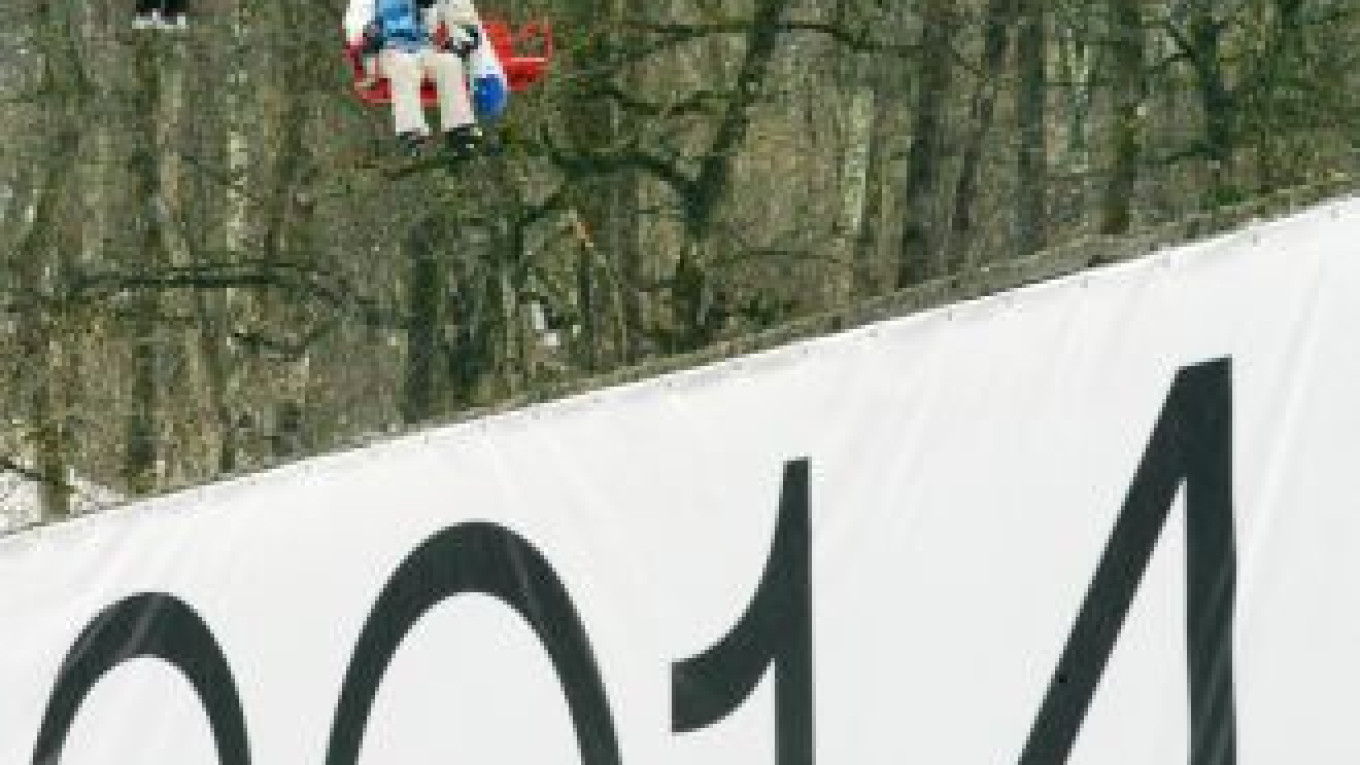Environmentalists have accused the Sochi 2014 Organizing Committee of obstructing access to representatives of the United Nations Environment Program, or UNEP, during their annual inspection of Sochi Olympic construction projects this past weekend.
Environment Watch North Caucasus, the main green pressure group in the region campaigning against the adverse environmental impact of Olympic construction projects, met with four delegates from the UNEP's Sochi group Sunday evening.
“We met with four experts from the UNEP,” said Suren Gazaryan, a spokesman for Environment Watch who was at the meeting, “but the organizing committee, which arranged the visit, did all it could to delay and limit the amount of time we spent with them,” including delaying announcing the meeting till the very last minute and timing it for the end of the last day of the delegations' visit.
Greenpeace Russia and the WWF boycotted the UNEP visit amid concerns that the inspections have become part of a so-called “greenwash” of the controversial project.
The UNEP has sent a delegation to Sochi annually to inspect the environmental impact of the Olympic building sites.
But after an October 2010 visit, greens said the working group had “failed to establish a dialogue between officials and the public.” WWF Russia called on the UN group to “admit that attempts to make the Sochi Olympics environmentally friendly have failed.”
“It is difficult to say whether the UNEP is being manipulated or what. But we do not want to be part of a green PR for the Olympic projects,” Pyotr Gorbenko, managing director of WWF Russia, told The Moscow Times.
“People talk to us, and people write to us — so we are aware of the issues,” said Christophe Bouvier, UNEP director of the regional office for Europe. “Our role is not a role of judgment, but of facilitating dialogue.” He pointed to the relocation of the bobsled track away from a sensitive area as a success.
Greenpeace Russia and WWF Russia resigned as advisers to Olimpstroi in February 2010, complaining that their concerns were being ignored.
Greenpeace and WWF are most concerned about the Mzymta River, which runs through the valley in Krasnaya Polyana, where the bulk of construction is taking place, and follows the route of a rail and road link connecting the mountain ski resort at Krasnaya Polyana with the Black Sea Coast at Adler.
Gazaryan said the Adler-Krasnaya Polyana road is the single most problematic project.
On Jan. 15, Environment Watch North Caucasus reported that Russian Railways had caused a spill leading to the mass death of fish in the Dzykhra River, a tributary of the Mzymta.
The group said it traced the spill to a Jan. 8 leak from a dump used by Russian Railways for earth removed from a tunnel it is building for the Adler-Krasnaya Polyana highway. The group said the outfill was found to contain dangerously high levels of toxins.
Russian Railways did not respond to requests for comment by Monday evening.
Bouvier said the UNEP was looking closely at the impact of the new railway. The UN delegation's next report will be published in March.
A Message from The Moscow Times:
Dear readers,
We are facing unprecedented challenges. Russia's Prosecutor General's Office has designated The Moscow Times as an "undesirable" organization, criminalizing our work and putting our staff at risk of prosecution. This follows our earlier unjust labeling as a "foreign agent."
These actions are direct attempts to silence independent journalism in Russia. The authorities claim our work "discredits the decisions of the Russian leadership." We see things differently: we strive to provide accurate, unbiased reporting on Russia.
We, the journalists of The Moscow Times, refuse to be silenced. But to continue our work, we need your help.
Your support, no matter how small, makes a world of difference. If you can, please support us monthly starting from just $2. It's quick to set up, and every contribution makes a significant impact.
By supporting The Moscow Times, you're defending open, independent journalism in the face of repression. Thank you for standing with us.
Remind me later.


